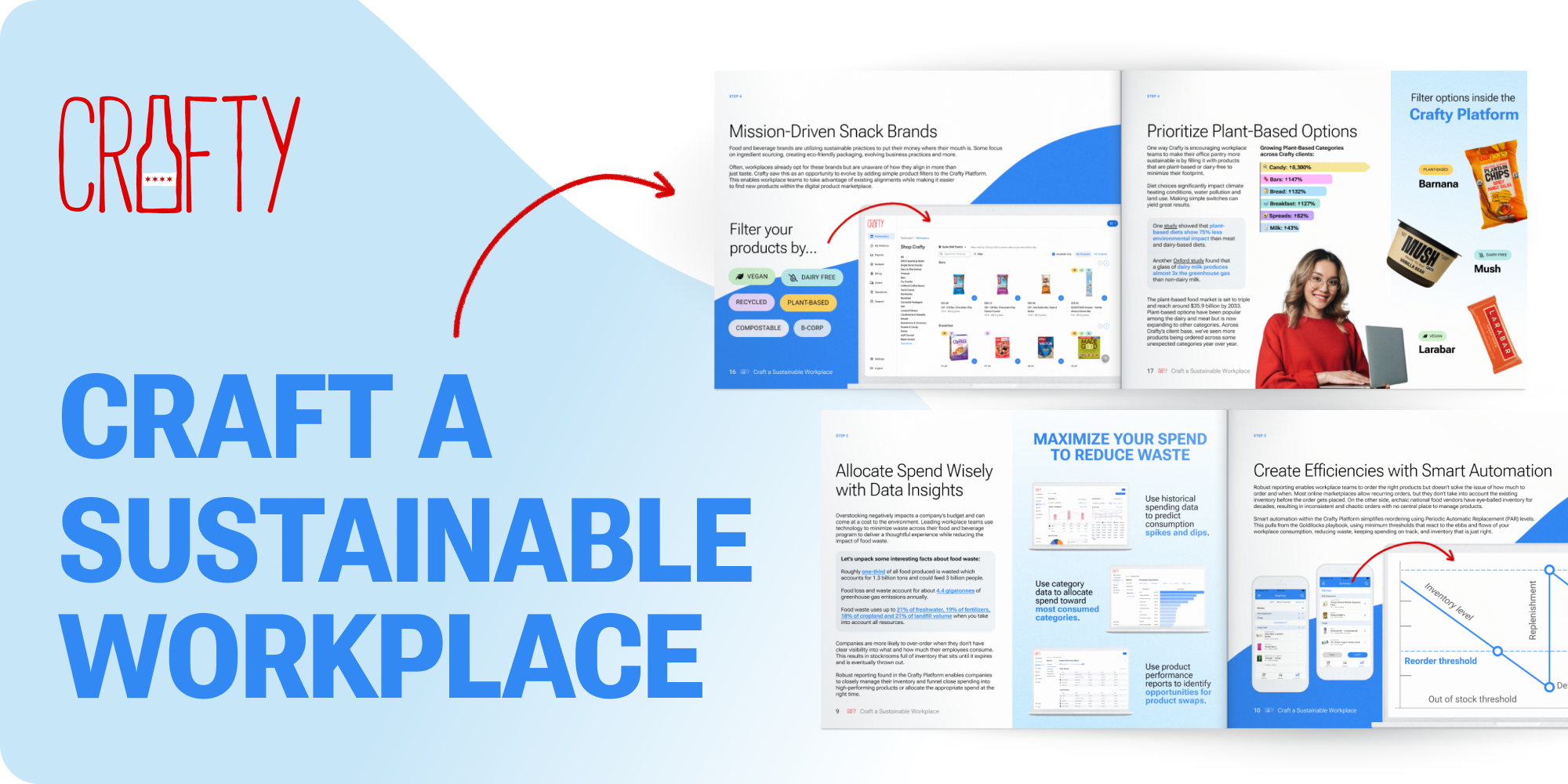June Workplace Insights and Trends Fresh Out the Pantry
We are becoming more mindful of the impact of food and beverages on our bodies and the environment.
In recent years, there has been a significant shift in how we think about what we put into our bodies. In the 1990s and 2000s, one could say it was all about the latest diet fad, whether that was Atkins, Master Cleanse, etc. These days, the focus goes deeper to explore the impact of our food and drink on our bodies and the environment.
This growing mindfulness stems from an increased awareness of health and sustainability issues, driven by channels like TikTok or Instagram. Our choices become more deliberate and informed as we learn more about our food sources, production methods, and long-term effects.
If we are seeing the tides change when it comes to grocery shopping, you better believe we need these changes to impact office snacking culture. Employees want to see your office pantry reflect their preferences, cravings, and values, so when choosing your product lineup, you need to consider more than just product type.
In this roundup, let's unpack the recent sustainability and mindful eating trends to understand what matters most to your employees.
Experts have designated 2024 as the year of sustainability powered by technology.
The World Economic Forum cites a tripled number of executives globally who understand the business case for sustainability between 2022 and 2023.
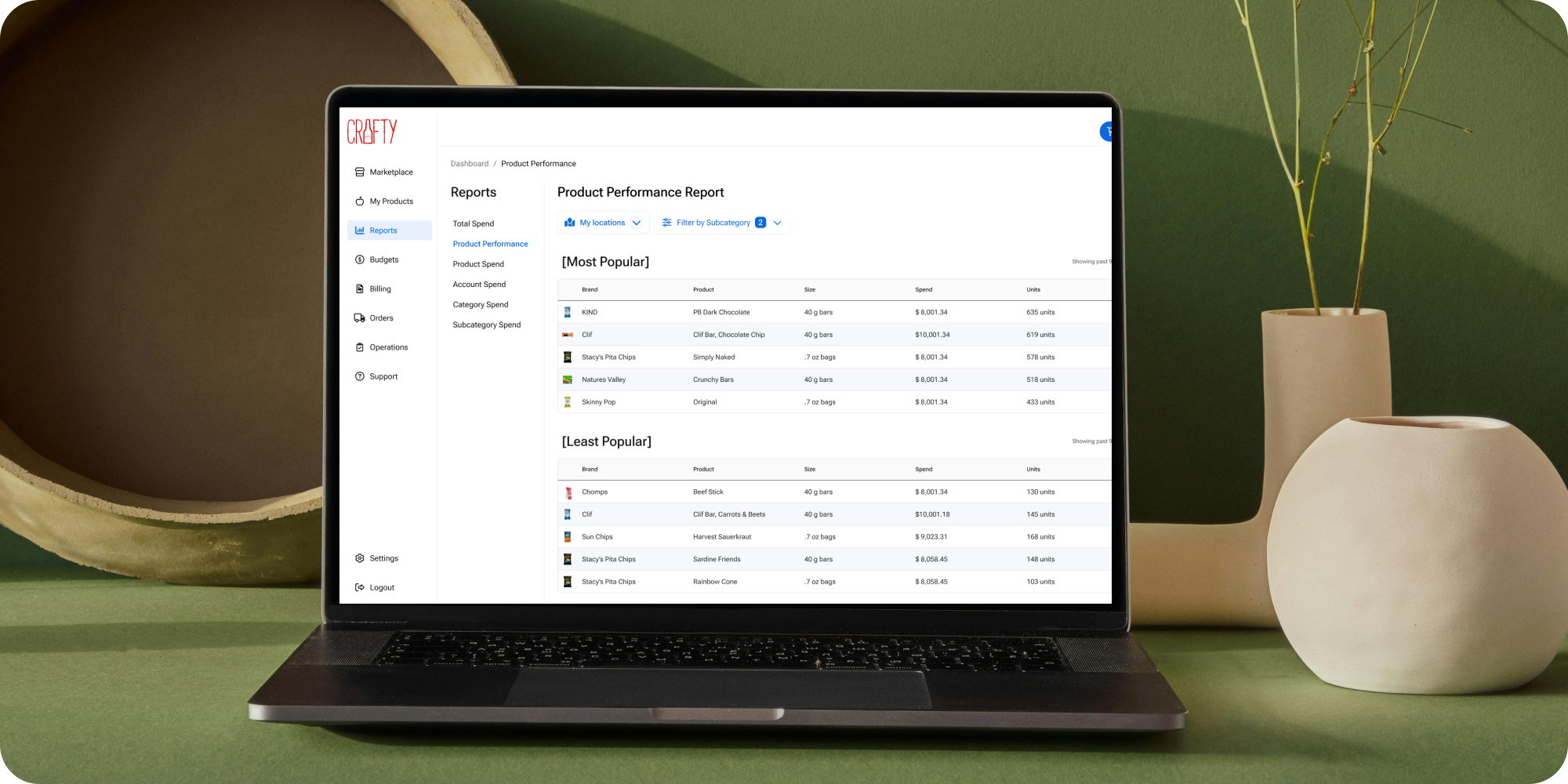
Prior to 2024, much of the sustainability conversation was around what to do with waste once it happens. Although that is still very important, the conversation has shifted to focus on how to prevent waste in the first place. Contrary to what I, Robot, and other popular dystopian movies may make it seem, technology can be used, in this case, as a force of good.
Finding opportunities to minimize waste can be difficult if you don't know where it's happening. Technology allows us to uncover where waste is happening and unlock opportunities to streamline and consolidate efforts to minimize waste. New research from Capgemini found that 50% of senior executives believe in the power of technology to create more reductions in greenhouse gas emissions and energy consumption.
The study goes even further, saying that the number of executives who believe in the business case for sustainability increased threefold—from 21% in 2022 to a whopping 63% in 2023. In addition, 52% of business executives stated their sustainability plans for the next 12-18 months are likely to increase (compared to just 14% who said they were likely to decrease).
You don't know what you are wasting across your company's office food service if you can't see the ins and outs of your program at a glance. The Crafty Platform allows you to see ALL your product lists, orders, inventory, spend and operations in one central place to find opportunities to create efficiencies and minimize waste easily.
- Central Orders: Online marketplaces may be convenient, but this ordering style, especially in bulk, can have devastating results. Amazon's carbon emissions grew by 18% in 2021, generating 71.54 million metric tons of carbon dioxide in one year. Centralizing orders minimizes the impact of long-distance shipping and additional packaging.
- Order Automation: Smart order automation reduces product waste and keeps spending on track. The Crafty Platform uses periodic automatic replacement (PAR) levels that react to the ebbs and flows of your workplace consumption, so inventory levels are just right.
Are you looking to incorporate more sustainable practices into your office? Crafty's Sustainability Report is full of actionable (and easy!) ways to do so.
A new report finds that 73% of Gen Z and Millennials prefer eating food for energy vs. dietary supplements.
Lifesum State of Healthy Eating and Wellbeing Report states that younger generations prefer to eat their vitamins.

In 2021, people in the U.S. spent nearly $50 billion on vitamins and dietary supplements to fill nutritional gaps in their diets. The days of taking a handful of vitamins may be a thing of the past. Younger generations are pulling from the functional wellness playbook and eating or drinking their vitamins.
Lifesum's 2024 report found that "snackable supplements" such as energy-boosting bars, gut-friendly trail mixes and drinks that promote sleep are on the rise. The report outlined the top priorities for Gen Z and Millennials:
- Sustain energy (73%)
- Promote gut health (65%)
- Support mental wellness (61%)
- Enhance skincare (46%)
- Promote balanced hormones (43%)
- Support good sleep (40%)
Investing in food options is not just a perk play but a productivity play. An article by the Harvard Business Review says it perfectly. "Some foods, like pasta, bread, cereal and soda, release their glucose quickly, leading to a burst of energy followed by a slump," says the article. "Others, like high-fat meals (think cheeseburgers and BLTs), provide more sustained energy but require our digestive system to work harder, reducing oxygen levels in the brain and making us groggy."
The key is finding the right mix of products that both appeal to the taste and habitual preferences of your employees while also curating those options to get the desired work results you want. Here are a few pantry picks that may be worth exploring:

Verb:
Verb is a caffeinated snack bar with just 90 Calories and a shot of espresso worth of caffeine (65mg). The caffeine comes from organic green tea, so you get long-lasting energy without the jitters. It's the perfect way to start your day, stay focused through the afternoon slump, or knock out a challenging workout.
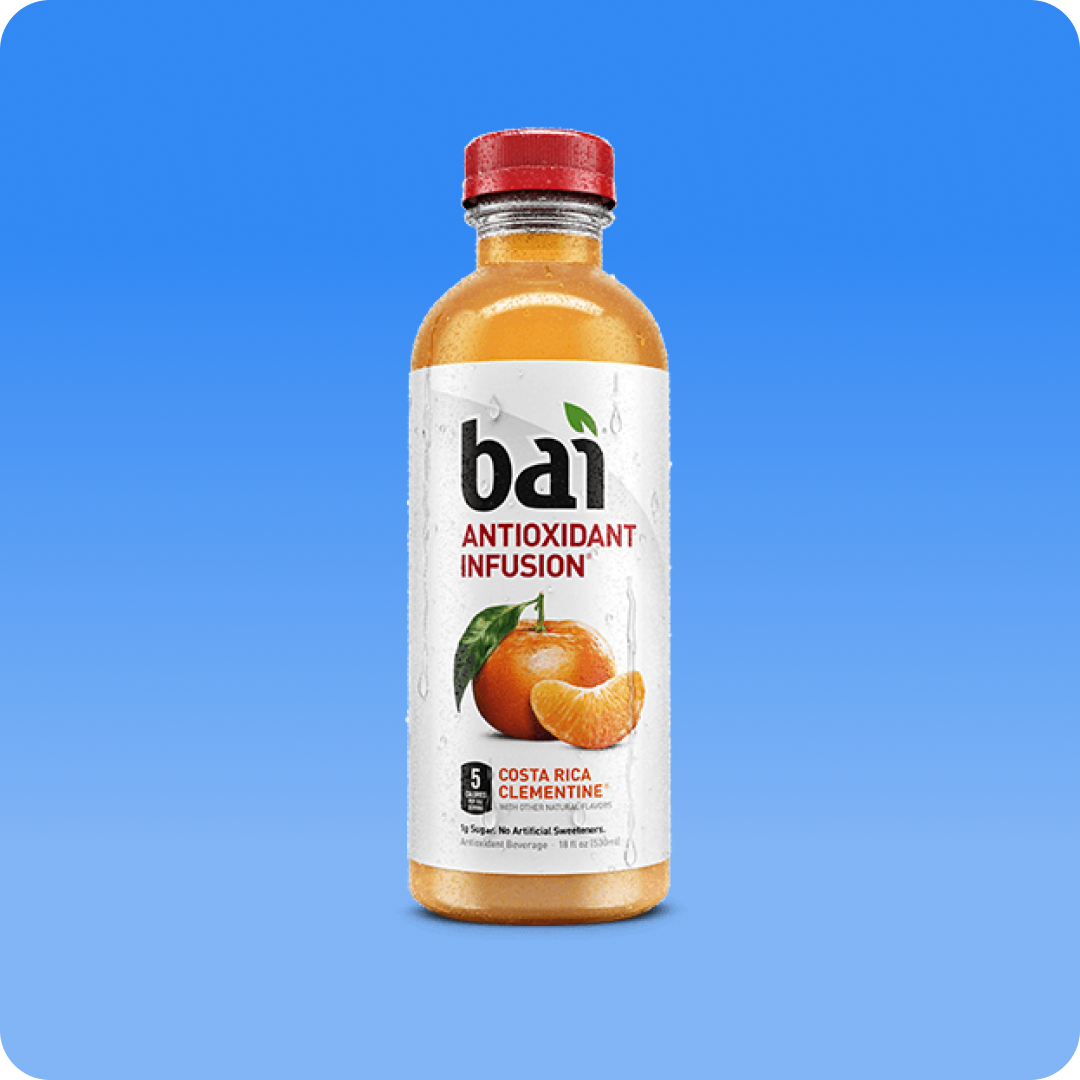
Bai:
Bai drinks are infused with antioxidants, electrolytes, and vitamins like Zinc, Vitamin C or Vitamin E to support a healthy immune system. These fruit-flavored waters are a great alternative to sodas or juices as they utilize naturally sourced sweeteners, resulting in beverages that are around ten calories and only 1 gram of sugar.
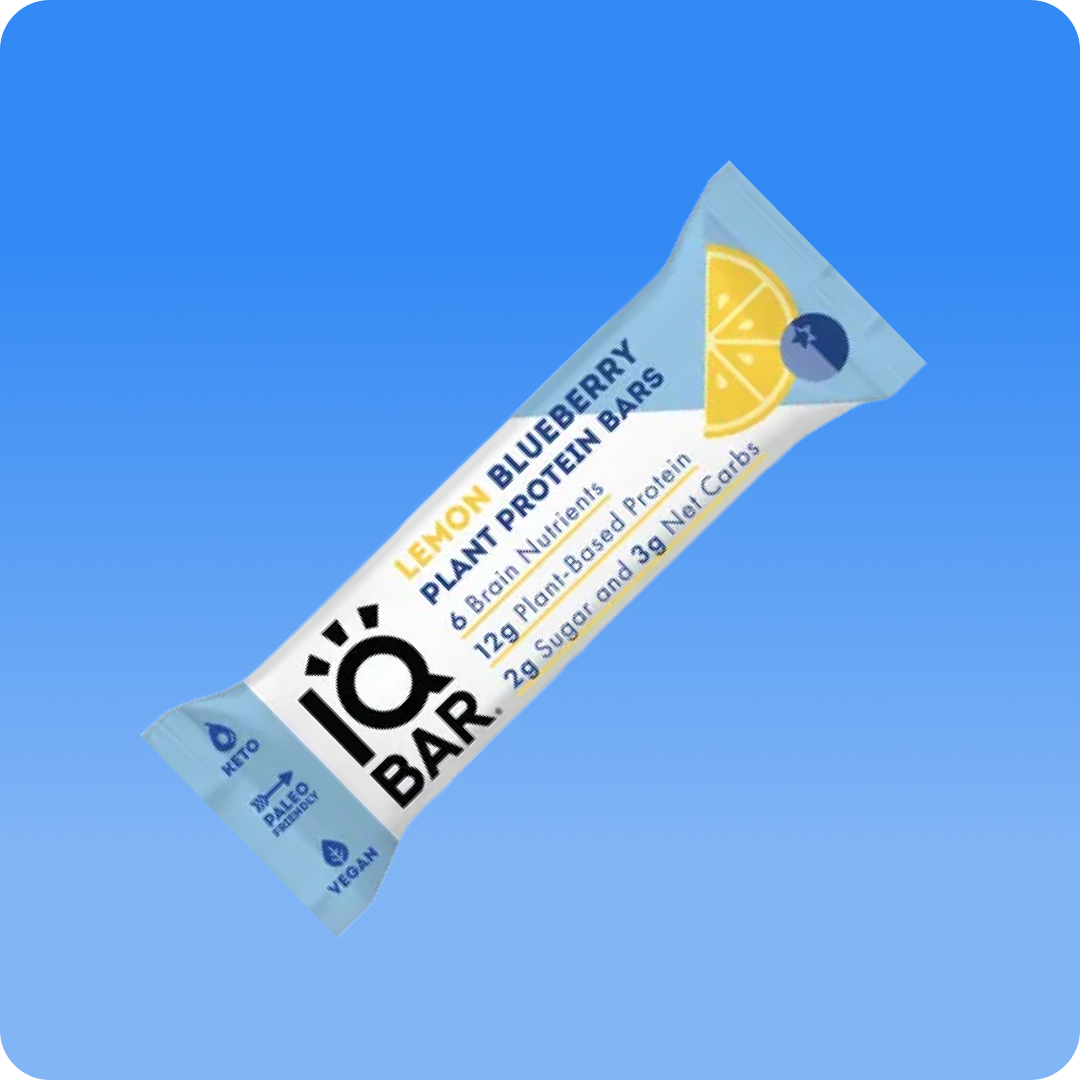
IQ Bar:
IQ Bar makes plant-based protein bars, hydration mixes, and instant coffee designed to support physical and cognitive performance. It is known for being keto-friendly, vegan, and paleo-friendly, and its bars contain nutrients like brain nutrients, plant protein, and prebiotic fiber.
Coke's new smaller bottle is projected to reduce CO2 production annually by 81,000 tons.
FastCompany reports the new bottle will be lighter and thinner and will use less plastic.
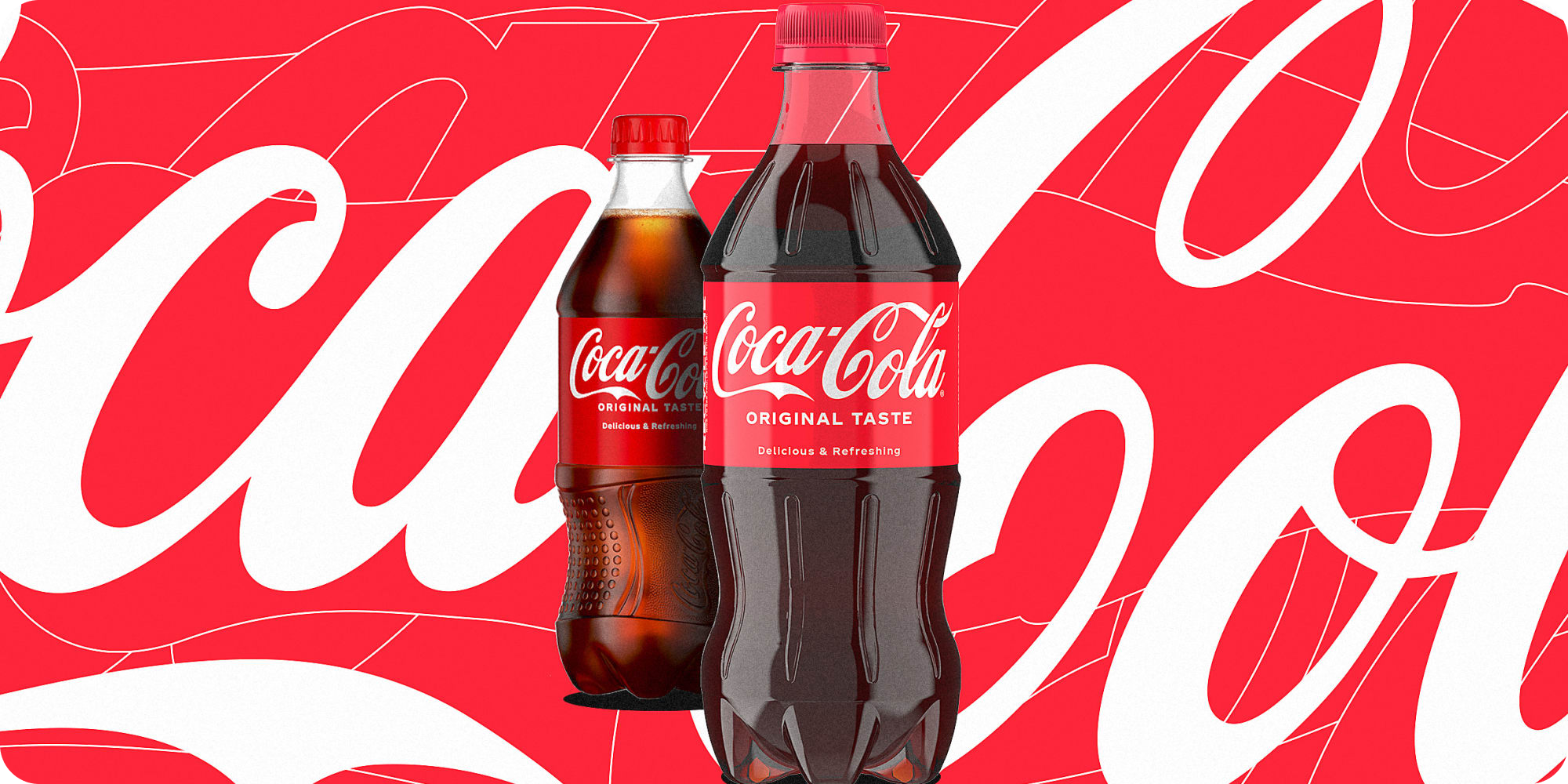
[Image: Coca-Cola]
Did you know that a Coca-Cola bottle weighed 21 grams just ten years ago? The news is in, and The Coca-Cola Company is reporting that it will be downsizing bottles across its portfolio of soda brands (Coke, Fanta, Sprite, and more) to 18.5 grams, which is approximately a 12% reduction in weight—one small step for Coca-Cola Co., and one giant leap in our race toward a more sustainable planet.
Now, a few grams may not seem like a lot, but simply shaving off a few grams is projected to reduce the amount of CO2 produced by around 18,000 tons (equivalent to taking nearly 17,000 cars off the road!).
We like to see that even small changes can yield great results. Less weight means less plastic and, therefore, less petroleum. Small gains like a few grams per bottle can add up quickly with the number of people who drink Coca-Cola products. The lighter-weight bottles will reduce new plastic use by around 800 million bottles in 2025 versus 2024.
Conclusion
There you have it! It's not just about what types of snacks and drinks you have but how those benefit your employees' well-being and their environment. At Crafty, we don't want to make these changes on a whim for every trend around the corner. Instead, we keep our ear to the ground and then use our consumption and spending data to inform which opportunities may impact your experience most. Learn more about our office pantry services and how we make mindful product choices to craft a better workplace.
🚨 NEW REPORT
CRAFT A SUSTAINABLE WORKPLACE
Explore the five practices leading workplaces use to build sustainable office pantry programs.
CRAFT
A BETTER
WORKPLACE?
Elevate your office food and beverage program with enhanced services managed in one innovative, centralized platform.


